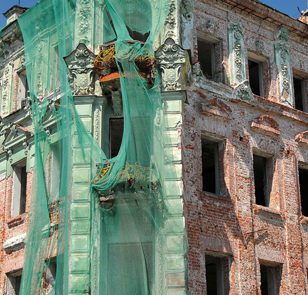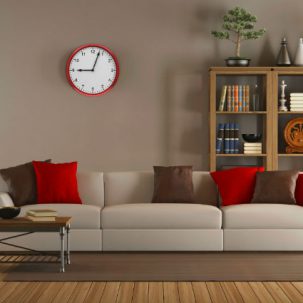What is buildings insurance?
May 11, 2016
Damage to your home can cause untold strife, particularly if you’re liable to pick up the bill for something out of your control. Underwriter Philip Walsh talks us through what buildings insurance is, how it can protect you from these costs, and things you may wish to consider when taking out a policy.icy.

What is buildings insurance?
Buildings insurance is an insurance policy that covers the financial cost of repairing damage to the physical structure of a property in the event of damage or theft. This includes the roof, floors and walls, as well as any fitted or permanent fixtures (i.e. a fitted kitchen).
The cause of the damage is important. A typical policy will cover the holder from damage which is out of their control, and may include (without being limited to) the following:
- Flooding;
- Fires and arson;
- Explosions;
- Malicious damage and vandalism;
- Storm damage, and that from falling trees.
There are often limits to what kinds of damage is included in your insurance policy, so it’s worth checking the details thoroughly before taking out a policy. This way, there’ll be no nasty surprises when you need to make a claim.
What does buildings insurance cover?
Buildings insurance will cover everything which could be considered a permanent part of a property. This includes doors, windows and anything which is necessary to make a property secure. It also covers bathroom fixtures such as showers and toilets, and fitted kitchen appliances which would not be transferable to a new property.
Most policies will also protect outbuildings within the properties’ grounds such as a garage or shed. This is standard practise, but there are exceptions. Structures such as swimming pools are not typically covered, and although you can usually arrange with your insurer for them to be included, this will add to the cost of your insurance.
A common point of confusion is the extent to which a building’s insurance policy will protect your possessions in the event of damage. While some might assume that by insuring the building you’ve made sure that everything in it will also be covered, this is not the case. For personal items, freestanding appliances and decorative items, like carpets and curtains, contents insurance is usually required to provide cover. Fixtures and fittings however, will tend to be covered by your buildings insurance. It is always worth checking the details of your policy to confirm the extent of your cover.
How much is buildings insurance?
Buildings insurance is calculated on rebuild value, not the market value of a property. This means the property will be insured for the cost of repairing any and all damage after a catastrophic event. This is an important distinction, as you will not be covered for the market value of the property prior to the damage.
As with most insurance policies, the price will vary depending on a number of conditions, including the extent of your cover, the value of what is under protection, and any extras which you may wish to add to the policy.
One extra which is well worth considering is home emergency insurance. This will cover you in the event of sudden and unexpected failure of facilities such as gas and electricity, a compromise to the security of the building, or infestation by vermin.
Various aspects of your home will affect the annual cost of your insurance, including whether your house is a listed building, the age of the property and the cost of suitable accommodation should you have to relocate while a rebuild takes place. Understanding exactly what your insurance provider measures when quoting, and the extent of cover available to you, is vital before taking out a policy.
How to calculate buildings insurance cover
There are many rebuild calculators online which you can use to work out the cost of rebuilding a house. Costs do not remain constant, so these may help to give you an idea of whether your buildings insurance is adequate.
Rebuild calculators and price comparison sites can be useful for initial research, however their quotes and findings may not provide a complete picture of the costs you’ll face. For an accurate rebuild cost, contacting a surveyor is your best option.
If you’re purchasing your first home or thinking of changing your buildings insurance provider, always contact the insurers directly and discuss your requirements. Buildings insurance cover differs from provider to provider, and it is essential that you select a policy which is appropriate for you and the individual circumstances of your home.






 Very satisfied with the service from Hiscox as always
Very satisfied with the service from Hiscox as always

